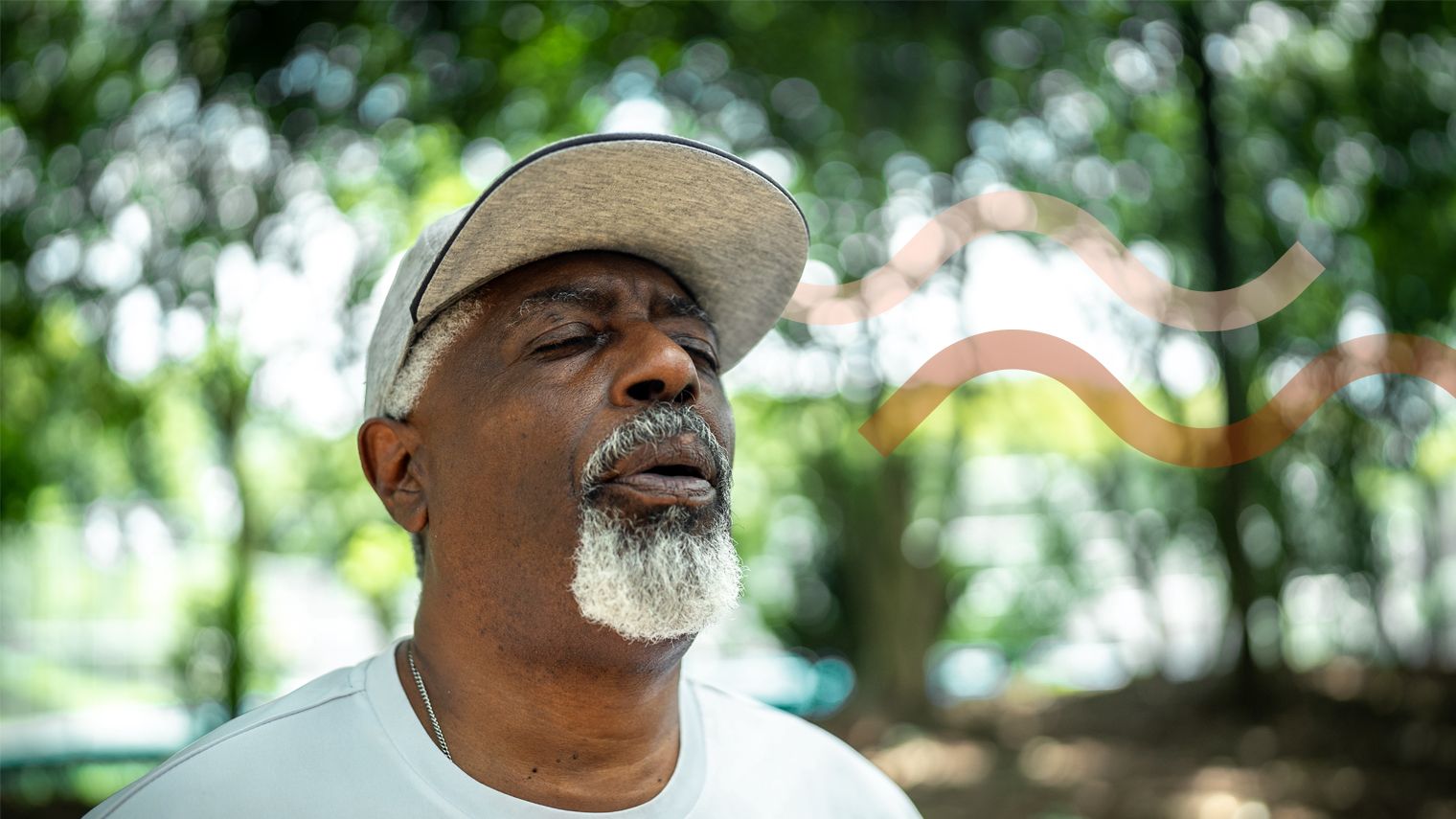How to Manage Anxiety or Panic Attacks Alongside COPD
February 07, 2024
Content created for the Bezzy community and sponsored by our partners. Learn More

Photography by FG Trade/Getty Images
Juggling anxiety or panic attacks while living with COPD can be challenging for a number of reasons. Here are ways to stay grounded.
If you’re living with chronic obstructive pulmonary disease (COPD) plus anxiety or panic attacks, you’re not alone.
According to a 2014 research review, up to 50% of people with COPD may experience anxiety. Anxiety, depression, and panic attacks are common among people with COPD.
Living with COPD is already stressful. If you’re experiencing anxiety or panic attacks in addition to COPD symptoms, you know what it’s like to lose your ability to regulate your breathing and calm your heart rate — it can be scary.


What does an anxiety or panic attack feel like?
A panic attack is a sudden, intense episode of overwhelming fear and anxiety when there is no true threat. An anxiety attack is usually linked to fear or stress about an upcoming event or experience.
According to the National Institute of Mental Health, anxiety and panic attacks can cause physical and emotional symptoms, including:
- shortness of breath
- rapid heart rate
- chest pain or discomfort
- shaking or trembling
- lightheadedness or dizziness
- nausea or upset stomach
- sweating, chills, or hot flashes
- numbness or tingling sensations
- detachment from yourself or your surroundings
- a sense of impending doom or extreme fear
You might feel extreme shortness of breath, which can worsen anxiety and panic attacks and lead to a cycle that’s difficult to break. Panic attacks can be unpredictable and difficult to manage, but they’re not impossible to treat. Here are some tips and tools to help manage anxiety and panic attacks alongside COPD.
Medications
Your doctor might prescribe medications to help manage anxiety and panic attacks. Some research suggests that a type of medication called benzodiazepines might contribute to COPD complications. But daily medications that don’t fall into that category are also available.
Remember, all medications have the potential to cause side effects and interactions. Starting with a low dose and increasing it slowly over time can help lessen the side effects you might experience.
Your doctor will weigh the risks and benefits with you to decide which medication is the best option for you.
Pulmonary rehabilitation
Pulmonary rehabilitation is like going to a gym that’s dedicated to your lungs. Your healthcare team will usually include doctors, nurses, respiratory therapists, physical therapists, dietitians, and exercise specialists.
According to the American Lung Association, your care team will offer education, guide you through different types of exercise based on your needs, and teach you how to improve your breathing.
Pursed-lip breathing exercises
Breathing exercises can be helpful for managing anxiety and coping with a panic attack. One useful exercise is called pursed-lip breathing. A research review published in 2022 suggests that pursed-lip breathing can be helpful because it can:
- improve the way you breathe in and out
- slow down your breathing rate
- force air movement through your lungs
- relax your entire body, including the muscles you use for breathing
Try to practice this exercise before you find yourself in the middle of an anxiety or panic attack. To give it a try, follow these steps from the American Lung Association:
- Sit in a relaxing position.
- Take a regular, slow breath in through your nose with your mouth closed for a few seconds.
- Pucker your lips as if you’re going to blow out candles or whistle.
- Breathe out slowly through your pursed lips for 4–6 seconds.
- Repeat as needed.
Relaxation techniques
Relaxation techniques such as mindfulness and meditation can improve a common symptom of COPD and anxiety or panic attacks: shortness of breath.
A 2020 research review found that mind-body exercises, including tai chi and yoga, were helpful for people living with both COPD and anxiety.
You might feel extreme shortness of breath, which can worsen anxiety and panic attacks and lead to a cycle that is difficult to break.
Talk therapy or counseling
Talk therapy or counseling can help if you’re having trouble managing your anxiety or panic. One possible type of treatment is cognitive behavioral therapy (CBT). With this approach, your therapist will help you identify thoughts that affect your feelings and symptoms and find coping skills to manage them.
One 2020 review suggests that CBT is a valuable treatment for people living with COPD, anxiety, and depression.
Support groups can also be helpful for finding a sense of community when you’re juggling COPD and anxiety. Being with others who are dealing with similar problems can help you feel less alone and hear about techniques that work for other people.
Bezzy COPD also hosts forums that can help you connect with others if you’re unable to attend in-person support groups.
Takeaway
If you’re living with anxiety and panic attacks in addition to COPD, you’re not alone. It might be difficult to understand the difference between an anxiety or panic attack and a COPD exacerbation.
Talk with your doctor about any new or lasting symptoms. Getting support is important whether or not you experience anxiety or panic attacks.
Medically reviewed on February 07, 2024
8 Sources


Like the story? React, bookmark, or share below:
Have thoughts or suggestions about this article? Email us at article-feedback@bezzy.com.
About the author